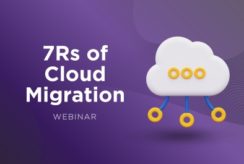The job market is volatile, hybrid working policies are in place, and long-standing operating and business models continue to be scrutinised. Businesses around the globe have accelerated the modernisation of the workplace and ways of working in response to one of the most effective disruptors of the century.
A common term used to describe such transformation programmes is the “Future of Work”, proclaiming that the future of work is ‘here’ or has ‘arrived’. What this actually means is that what used to be the future of work has arrived, and sooner than was expected. This new way of working demands greater agility, flexibility, alongside culture and policy change. It can also demand physical workplace alterations and divestments, and substantial investment in collaborative technology to ensure employees can work and connect seamlessly wherever they reside.
Swiftly responding to these exigencies is priority number one. Failure to adapt will likely result in a loss of talent, productivity and in the long-term, market share. However, there is a risk in assuming that businesses that have acted and adapted to the most recent demands of the working world have safeguarded themselves from future vicissitudes or even primed themselves for success. Observant leaders will recognise that this new way of working, and the adaptations in which they have invested in are not the future of work per se. There is no competitive advantage, at least no perpetual source. And the future of work remains in the future. It is not ‘here’, and it never will be. They have simply been forced to rapidly modernise.
So, what can business leaders learn in the wake of the COVID-19 pandemic to mitigate the impact of future global disruptions and to perhaps identify opportunities to become a disruptor themselves? There are three key things that business leaders could do:
Wavestone consultants are unopposed in our enthusiasm to help our clients to build and maintain a resilient business models, whilst developing capabilities to identify and take advantage of emerging opportunities to help our clients grow and maintain their market leadership.



